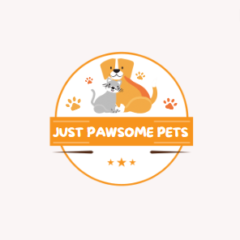7 Bizarre Dog habits explained.
By admin / December 3, 2022 / No Comments / Uncategorized
You may often seek the reasons behind your dog’s strange behaviors. Sometimes we regard something as cute antics and rarely put much thought into what causes these behaviors in our pet. We have put together some eccentric behaviors your pooch displays along with the most likely reasons behind each of them, for the ease of understanding your furry companion better.
1. That cute head tilting pose has more to it than eliciting those oohs and ahs in us: In the book `Inside of a Dog’ by Alexandra Horowitz, head tilting has been explained as a dog’s attempt to adjust its outer ear to hear better and locate some defined sounds.
2. Chasing the tail: Dogs chase their tail for a variety of reasons. At times it is done to kill boredom. Being restricted within a small space also incites the tail chasing activity in canines. Playfulness is another reason for it. Apart from this there could be the presence of fleas or a medical condition at work. In case the pooch is obsessively after its tail, it’s time to consult a vet without further delay. Dogs can sense your positive reactions to any action carried by them and if their tail-chasing makes you laugh, the canine will simply engage in it to get your attention.
Chasing the tail compulsively and then chewing on it may cause serious injury and hair loss on this hind part. Image: http://www.howtobuildahouseblog.com
3. When your dog Rotates before lying down: This behavior has been passed on in dogs from their wild ancestors. The untamed canine would dig a hole in the earth and go around to flatten the ground to turn it into a comfy resting spot. This exercise is still practiced by our domesticated pooches before retiring to bed. (vid.credit – www.thedodo.com)
4. Eating grass: According to experts dogs eat grass to improve digestion, to introduce fiber intake and add certain nutrients to their diet.
It is also believed consuming grass can cure intestinal worms found in canines. Image: https://hellonuzzle.com/
5. Kick in the air when you tickle its belly: The famous belly rub is technically scratch reflex. According to Animal Planet this involuntary reaction happens when something irritates the dog. The nerves underneath the skin that are connected to the spinal cord get activated and a message to the leg muscles is sent to kick for the purpose of discarding the irritant.
Almost all most dogs like to be scratched on their tummies and in case it is not enjoying, it will simply move away. Image: http://www.huffingtonpost.in/
6. Drag their butts along the ground: A dog will drag its anus along the carpet/ground when something is causing it discomfort/irritation. It could be a sign of worms, infection or swelling in the region of the anal area. When a dog’s anal sacs get blocked or swollen it may scoot its bottom on the grass/ground in an effort to clear them. This problem especially bothers small dog breeds. Canines communicate using the stinking fatty substance found in the anal sacs that are placed inside on either side of the anus.
Sometimes these glands (anal sacs) get blocked and need to be expressed by the vet. Only a veterinarian can salvage the dog from pain. Look out for some other signs that may hint at your pooch suffering from this condition, biting or licking the anal region, licking the paws, chasing its tail or inability to sit in a normal position. Image: https://www.youtube.com
7. Eating poop: According to Dr. Sherry Weaver a female dog will eat its puppies’ poop as a cleaning ritual. The mother dog usually carries this clean up for about the first three weeks. Sometimes even puppies eat their own or other dog’s feces as part of satisfying their curiosity. This habit naturally dissipates before the pup turns about nine months old.
Environmental stress can cause a dog to eat its own poop: Spending too much alone time in kennels/confined spaces and anxiety caused by harsh punishments adopted by owner during house training.
A dog can also eat its poop to gain your attention, so don’t overreact else it’ll only encourage the pet to repeat this action. Image: http://dogsaholic.com
Article resource:
http://petsnacks.com.au
https://pets.webmd.com
Views: 0





